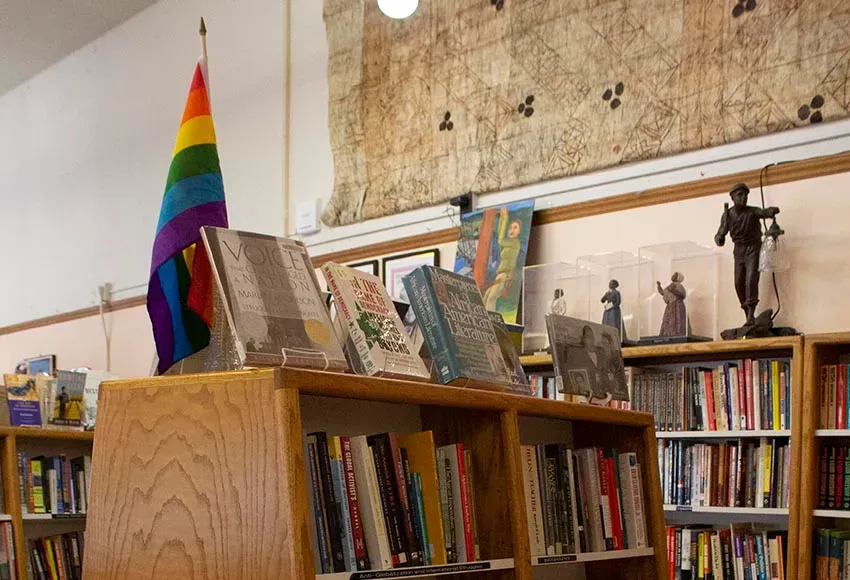It's an age-old question in Seattle: what comes first, the radical social movement or the theoretical literature? For the activists at Clara's Bookstore in Columbia City, the answer is the movement.
Doreen McGreth runs the store while also working for the Seattle Freedom Socialist Party. For the last three years, she has been in charge of organizing meetings, ordering literature for the store, and planning events, like the upcoming Roe v. Wade decision-day rollout, for when the Supreme Court announces its official decision.
"I was always a feminist," McGreth said of the passion that led her to Clara's. "I was a curator of the Lesbian Resource Center, which no longer exists, and just exploring feminism a long time ago. Liberal feminism didn't do it for me; it was a too pro-Democratic Party, and I had seen how screwed up the Democratic Party was. Then there were these elements of radical feminism [I had disagreed with], where men are the problem. I thought, 'That doesn't make scientific sense,' so I found socialist feminism that way, and I found Radical Women."
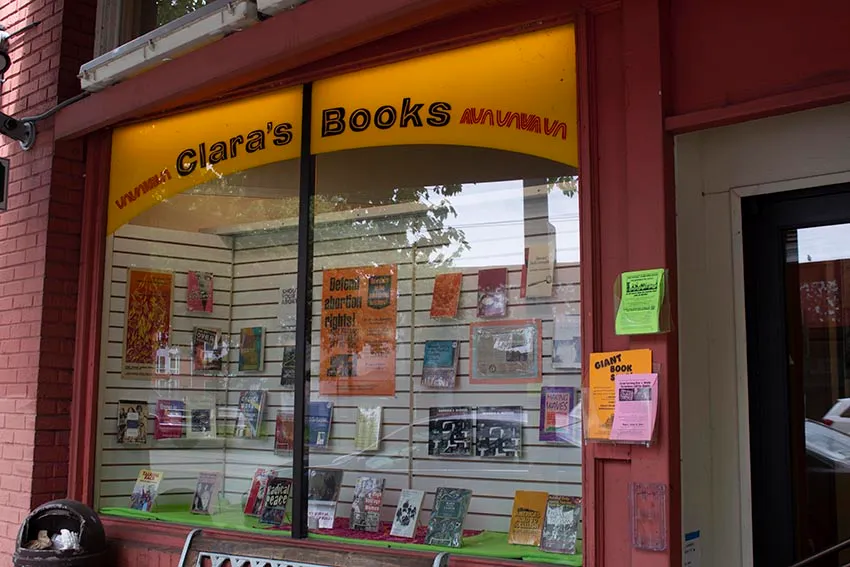
From there, McGreth founded the store. "It started just because we study a lot, and our members were always looking for unpopular leftist books, leftist literature, and you know, things that weren't mainstream," she said of the early days of the store. "We always had a small bookstore, but when we moved to this building, after some donations and renovations and building the bookcases, it became a home where a lot of leftists in Seattle know they can get Marxist-Leninist literature, they can get certain classics, and see different movements' stuff."
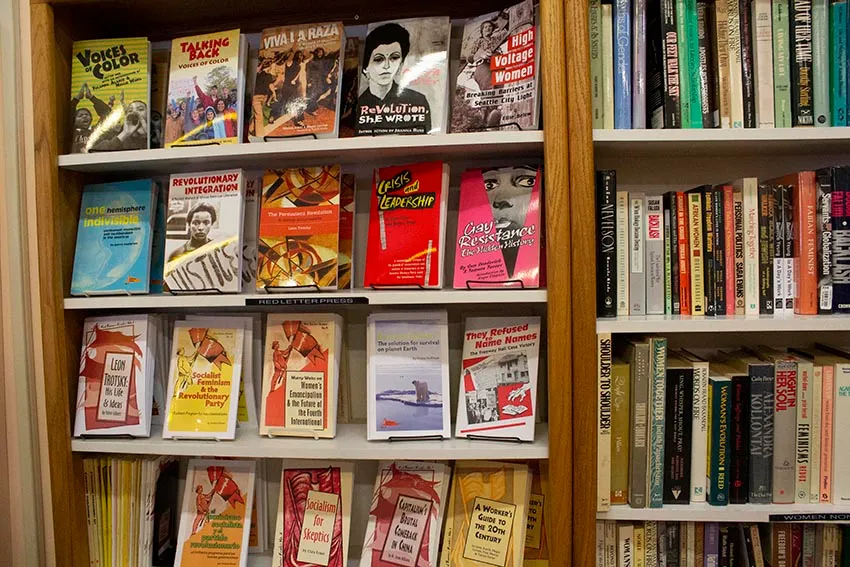
The store attracted more than just the Freedom Socialist Party and its activists. "The university professors know we're here, and they come because [we have] not the most popular literature but still important [books]," McGreth said.
The shelves are full of every radical socialist and feminist manifesto one could hope to find. Clara's has literature on critical race theory and anti-Blackness, LGBTQ+ history and activism, and of course, many titles on reproductive justice and feminist theory.
"The only thing we won't carry is right-wing shit," McGreth laughed. "Other things we don't carry are probably because of space. Like our fiction section is very small. We have a little poetry shelf, because we think poetry is very important, but we have such limited space."
While the store does carry LGBTQ+ titles, McGreth says the section is "lacking." She hopes to find more titles to fill the shelves soon. "I have made lists of titles. I just need to purchase them," she said.
Book fair coming up
Since the pandemic, Clara's, like many small businesses in Seattle, has faced some financial struggles, which made buying new books difficult. But, with the weather warming up, the bookstore is getting ready to kick off summer, and Pride month, with a bang!
"We're having a book sale," McGreth announced. With the book donations the store has received over the winter, McGreth and fellow book enthusiast Austen Rioux are putting on an exciting fair.
"The book sale benefits the Freedom Socialist fund drive, which is the newspaper published out of this building. ...They're hoping to raise [$100,000] through a combination of member pledges and things like the book sale... All the proceeds will go to the production of the newspaper," Rioux said.
"With Doreen's help, I'll be organizing the book sale," he added, "and on the day of it, I'll be all about the setup and figuring out the paths of least resistance to getting people to buy books."
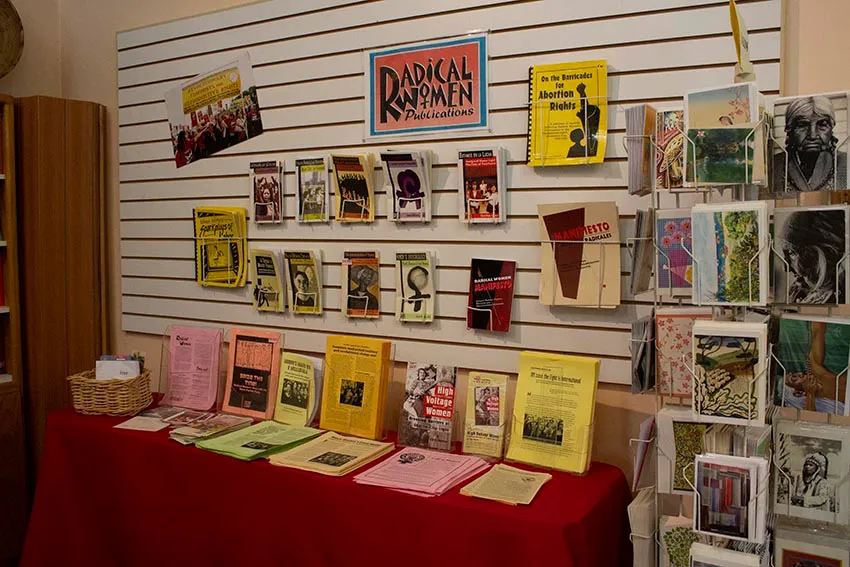
Literature and the movement
Literature is a crucial part of the radical socialist movement and is often influenced by those activists out in the streets. "Lots of times, the movement gets out in front of the literature, especially the literature that gets published that [makes] money, you know that is acceptable and mainstream," McGreth explained.
"Movements are going to get out in front of that literature and then influence it back. But then, there was a time during the '80s, a more conservative time, when the movements weren't out there as much. When that happens, then literature gets out there ahead of the movements, and I think that's an outlet, and it's very important. Sometimes we need that literature, especially when things go backward."
Roe v. Wade
McGreth and all those at Clara's Books are hoping to keep us from moving backward. Although no official decision about Roe v. Wade has been released, organizers are preparing for a day of action and using Clara's Books as a hub for their work.
"The leaked decision makes it pretty clear that Roe v. Wade is probably going to get overturned," McGreth said. "So, the Puget Sound Mobilization for Reproductive Justice coalition is trying to build something that is going to last beyond the day of decisive action. But on the day of the decision, we're planning – if we learn about the decision before noon – [to] be at the Federal Building at 5:00. If it's the afternoon, we'll be at the Federal Building the next day. ?
"We are, right now, just trying to [get everyone to come] to this day of decisive action and planning the rally and what kind of protest it's going to be."
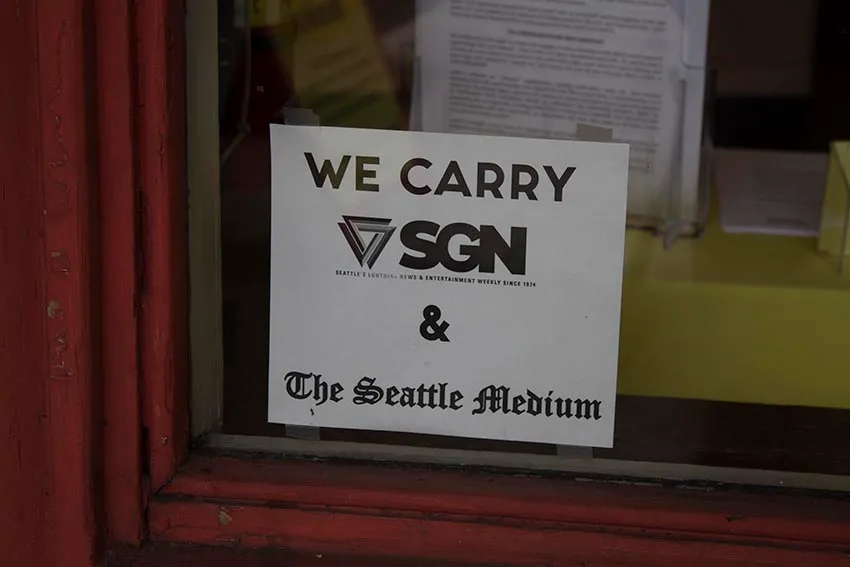
Connecting through books
Clara's Books has become a hub for those leading the movement to collaborate and discuss different theories and paths to social change. Books, McGreth says, are vital to these collaborations.
"Well, I still think printed books are important," she said. "I know I'm older, but when I read the paper – like I know the SGN is still printed – it's a different kind of reading than when I read on a screen. ...I listen to books for enjoyment on my phone. I get a little bit out of it, but it is not the same concentration. It is not the same. Your mind goes somewhere, and your creativity goes somewhere. When I'm on a screen and I'm listening, it's just not as attentive, and my brain doesn't go to those places. So to me, that's why books are so important. I think our brains work better with... paper than digitized."
For those at Clara's, the heart of the store is connection. Books allow a reader to form a connection with the author.
"I think that when people come into the bookstore, they feel a connection," Rioux said. "They're looking to discover a book to take home, and once they understand what Freeway Hall is trying to accomplish, that's a good way of meeting people. What was once just a watering hole for books is now like an activism hub in Columbia City. People know that, and they take it with them when they leave."


